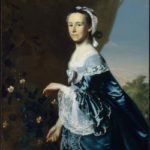A set of government and politics infographics that teachers can print out for their students, use for their exams, or use to create posters for their classroom.
Campaign Finance
Students can hear Sal give an introduction to campaign finance up to and after Citizens United, including the difference between soft and hard money, the influence of PACs and super PACs, and the impact of the McCain-Feingold Act. They can then follow that up with an in-depth video on Citizens United v. FEC in which Sal discusses the background and holdings of the case with scholars Richard Hasen, professor of law at UC Irvine School of Law, and Bradley Smith, former chairman of the FEC. Teachers can then assign an exercise to their students aligned to the current AP Government and Politics exam to assess how well they understood the content of the lesson.
Political Ideology in America: Bumper Sticker Politics
Americans love to personalize their vehicles in a way you will not see in many other countries. This lesson explores political ideology by analyzing data on automobile purchases and bumper stickers. Students will learn generalizations about conservatives, liberals, Democrats, Republicans, libertarians, socialists and appreciate the American custom of advertising political thought in public. Free registration required to access the lesson plan.
Dolley Madison and Politics
This short video analyzes both the practical and the psychological contributions made by Dolley Madison to the young republic. Practically, Dolley’s weekly receptions in the drawing room of the White House became the only public gathering place in Washington, DC for doing the real business of politics. Psychologically, Dolley became, in the words of Professor Catherine Allgor, a “Republican Queen”, whose charm and charisma made her a symbol of America during the War of 1812.
Local Politics: The Need for Compromise
This lesson examines the process of local decision making and its need for citizen input and compromise. Students simulate a local city/county council session and advise the council on public policy. Students are asked to consider the viewpoints of different citizen groups in order to reach a compromise that will benefit the entire community. This lesson can be used with a unit on local politics and can be adapted to reflect issues of compromise in your school or community. Free registration required to access the lesson plan.
Election 2020: Politics, Covid-19 and the Economy
The state of the economy during the presidential election season has a significant impact on not just the approval rating of the incumbent president at the time, but also has an impact on the policies in which presidential candidates run on. Additionally, the state of the economy also influences who will come out to vote in that year. This year, 2020, it is just one of many factors that may affect voter turnout but the economy may be underestimated. This exercise will encourage students to evaluate how other fluctuations in the economy may affect the ratings, policies, and decisions of the 2020 presidential candidates.
From Provocative to Productive: Teaching Controversial Topics
Get first steps for creating a respectful yet vibrant environment for students to explore diverse ideas on controversial topics, from politics to profanity, religion to racism. Four guidelines and a debate leader checklist provide a foundation for those seeking to steer productive conversations about controversial subjects.
Bell Ringer: Ranked Choice Voting
This bell ringer explores ranked choice voting and how it can be used as a tool to reduce political polarization.
Women Participate in the Ratification Debate

This short video assesses the role of “female politicians”: women who were interested in discussing the ratification politics and processes. The most visible of these was Mercy Otis Warren who, writing as “a Columbian Patriot,” opposed many aspects of the Constitution as undermining liberty. Professor Rosemarie Zagarri notes that many women throughout the country were thinking, talking, and reading about the ratification debates.
The Power of the Crowd
Political rallies: the scene of rousing speeches, cheering supporters and seas of signs and flags. These events are presidential campaign staples, but what do they offer the electorate?